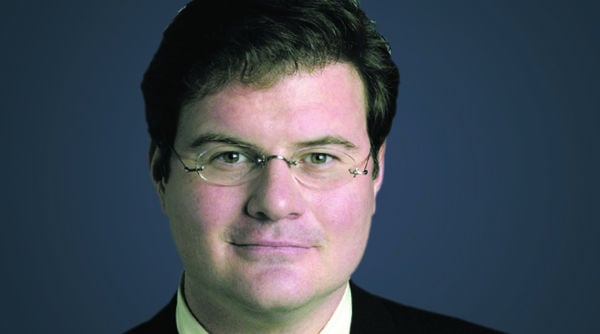By JONAH GOLDBERG

Jonah Goldberg
‘Idon’t understand how Jews in America can be Democrats first and Jewish second and support Israel along the line of just following their president,” vented Rep. Steve King, R-Iowa, on Boston Herald Radio last week.
It was a small controversy in the grand scheme of things, easily overlooked during a week when: a German pilot turned a routine flight into a murder-suicide mission, Ted Cruz drove the media batty by announcing he will run for president as Ted Cruz, an Army sergeant and Taliban captive the White House touted as a hero was charged with desertion and America joined forces with Iran in Iraq to kill Sunni jihadists while allying with Saudi Arabia in Yemen to kill Shiite jihadists (who are backed by Iran).
Still, King’s comments did enrage a lot of people, particularly people eager to make political hay. “I was shocked and horrified when I heard the remarks made by Rep. King today stating that we are ‘Jewish second,’ and implying that Democrats are anti-Semitic,” responded Greg Rosenbaum, chairman of the National Jewish Democratic Council.
Rep. Steve Israel, D-N.Y., took his hissy fit to Twitter. “I don’t need Congressman Steve King questioning my religion or my politics,” he tweeted. “I demand an apology from him & repudiation from GOP. #dangerous.”
That “dangerous” hashtag — no doubt a rich mix of sincerity and opportunism — is intriguing to me. What is the implied danger?
After all, King’s lament is that American Jews don’t care about Israel enough to break with President Obama.
“In a bizarre way,” left-wing writer Paul Waldman noted in the American Prospect, King’s remarks were “almost reassuring.” They highlight “just how rare anti-Semitism has become in America. An American Jew is more likely to be exposed to weird conservative philo-Semitism than to actual anti-Semitism.”
It’s a good point. On both the far right and among vast swaths of the left, the longstanding complaint against American Jews is that they’re guilty of “dual loyalty” — i.e., they care as much or more about Israel as they do the U.S. One need only spend a few minutes in the swampier quarters of the Internet, or at, say, UCLA, to find this sort of bigotry. Just this month, a Jewish student applying to be a member of the UCLA student council’s judicial board was asked, “Given that you are a Jewish student and very active in the Jewish community, how do you see yourself being able to maintain an unbiased view?”
But here’s Steve King, a passionate defender of Israel, complaining that American Jews aren’t being Jewish enough.
Part of the confusion is that being Jewish and supporting Israel have never been wholly synonymous, and regrettably they are getting less synonymous all the time. This is a source of great consternation in many Jewish circles, and a source of profound confusion and frustration in conservative circles. Just as right-leaning non-Jews are embracing Israel, left-leaning Jews are pushing it away.
That’s not a coincidence. The reason American Jews are disproportionately liberal is complex — because there is no single reason for it. I can rattle off a dozen or so with ease, including: FDR’s outreach to Jews, Harry Truman’s recognition of Israel, the historic necessity for Jews to seek protection from central authorities, the tendency of urban populations to be liberal, anti-Semitism in the old (and much more liberal) GOP of the 1920s through the 1960s, the timing of Jewish immigration from central Europe in an era when socialism was in its heyday, and the very secular worldview of most non-orthodox Jews.
Political scientist Kenneth Wald largely disagrees with these and other explanations, save for the last point. In a new article, “The Choosing People: Interpreting the Puzzling Politics of American Jewry,” Wald argues that American Jewish liberalism is derived chiefly from the fact that American Jews want a strict separation of religion and politics. He argues that Jewish support for Democrats intensified in large part because of the GOP’s embrace of Protestant evangelicals, even though Protestant evangelicals are wildly pro-Israel and philo-Semitic (i.e., the opposite of anti-Semitic). I think that’s empirically true, even if it gives short shrift to the deeper roots of Jewish liberalism.
One reason Jews are still liberal is that ideological and partisan affiliations die hard. They tend to be passed, like religion itself, from parent to child, generation after generation. But such loyalties aren’t static either. And while Steve King could have phrased it better, he was absolutely right that at some point — now or in the future — support for the left and support for Israel must conflict. And King is right to lament it when Jews choose the former over the latter.
Goldberg is a fellow at the American Enterprise Institute and a senior editor of National Review. Email him at goldbergcolumn@gmail.com or follow him on Twitter @JonahNRO.

No comments:
Post a Comment